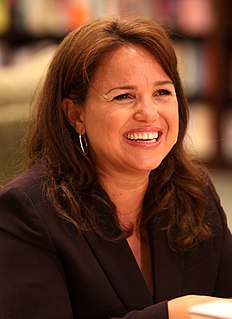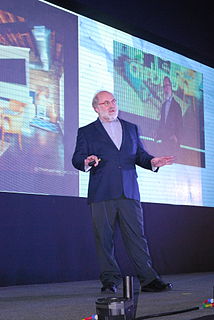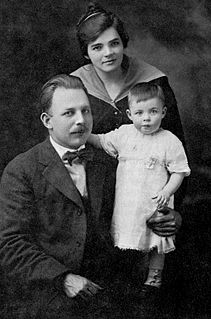A Quote by Hugh Ross
Many Christians are raised believing that to be true to God's Word means to accept that the universe, Earth, and life were created in six 24-hour days, only a few thousand years ago. Most people lack the theological and scientific tools to think through the implications of this teaching.
Related Quotes
I think the Bible is completely inspired by God in its overall messages. But, for the people of those days to know what was going to happen 4,000 years later in a world of astronomy or subatomic particles. They didn't have access to the knowledge that we presently have about geology. So, we know now that the world was created many of billions of years ago, 13 or 14 billion years ago. As far as they knew, the earth was the center of the universe. They thought that stars were little twinkling things in the sky where as now we know stars are very distant and much larger than the earth.
Just as with other great words, the word environment means different things. You might say that a cave woman twenty thousand years ago sweeping out the cave was improving the environment. Many people improving the environment think only in terms of the air they breathe in their hometown and the water in the aquifer under their hometown. My guess is very few are thinking centuries ahead or thousand of years ahead, but that's what we have to do.
About six years ago, Life magazine ran an article on the historicity of Jesus and I was floored to find that they conceded the only evidence we have for his existence is in the Gospels. But don't take Life's word for it. In his book The Quest of the Historical Jesus, the most definitive study that's ever been done on the subject, Albert Schweitzer admitted that there isn't a shred of conclusive proof that Christ ever lived, let alone was the son of God. He concludes that one must therefore accept both on faith.
For such is man: a Theological Dogma might be refuted to him a thousand times - provided however, that he had need of it, he would again and again accept it as true. Belief is always most desired, most pressingly needed where there is a lack of will. Fanaticism is the sole "volitional strength" to which the weak and irresolute can be excited, as a sort of hypnotising of the entire sensory-intellectual system.
It is better to allow our lives to speak for us than our words. God did not bear the cross only two thousand years ago. He bears it today, and he dies and is resurrected from day to day. It would be a poor comfort to the world if it had to depend on a historical God who died two thousand years ago. Do not, then, preach the God of history, but show him as he lives today through you.
Yet what is more awesome: to believe that God created everything in six days, or to believe that the biosphere came into being on its own, with no creator, and partially lawlessly? I find the latter proposition so stunning, so worthy of awe and respect, that I am happy to accept this natural creativity in the universe as a reinvention of 'God.'
There's a lot of scientific data that I found out as a scientist that actually show that this is really a young Earth. I believe that the Earth is about 9,000 years old. I believe that it was created in six days as we know them. That's what the Bible says. And what I've come to learn is that it's the manufacturer's handbook, is what I call it. It ... teaches us how to run all our public policy.




































